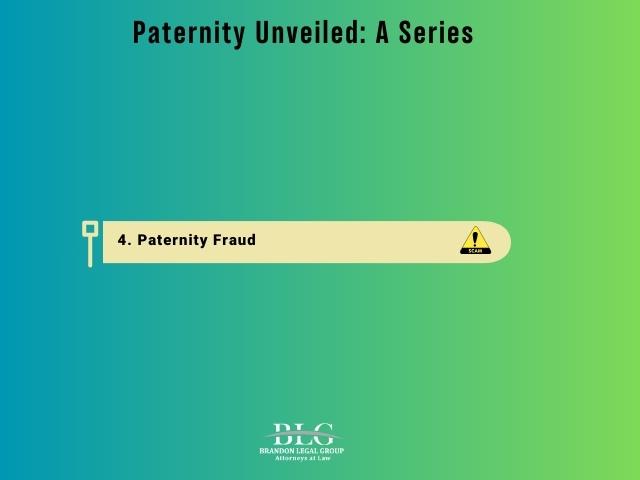 When Doubts Arise: The Path to Challenging a Paternity Claim
When Doubts Arise: The Path to Challenging a Paternity Claim
Imagine the shock and turmoil of discovering that a child you believed was yours might not be. Or the reverse, where you’re confident in your biological connection, yet face doubts and challenges from others. The realm of paternity is deeply personal and it’s essential to know how to navigate when disputes arise.
Legal Grounds and Processes for Disputing Paternity
Disputing paternity isn’t a simple matter of denying a claim or seeking a test. The legal framework surrounding these disputes ensures that the rights of all parties, especially the child, are safeguarded.
Legal Paternity vs. Biological Paternity: A man might be a child’s legal father without being the biological father, especially if he was married to the child’s mother at the time of birth or has accepted the role of the father.
Establishing Grounds for Challenge: Before seeking to challenge paternity, one must have valid reasons. These could range from genuine doubts about biological connection, evidence of deceit, or new revelations about the child’s birth circumstances.
The DNA Test: The most reliable way to determine biological paternity is through DNA testing, which boasts over 99% accuracy. Courts frequently rely on such tests to resolve paternity disputes.
The following is a DRAMATIZATION AND IS NOT AN ACTUAL EVENT: Mark always felt a close bond with his son, Ethan. But when his relationship with Ethan’s mother ended tumultuously, she claimed that Mark wasn’t Ethan’s biological father. Confused and distraught, Mark sought legal counsel and a court-sanctioned DNA test. The results confirmed his biological connection, putting an end to the doubts and solidifying his rights as a father.
Protecting Oneself from Wrongful Paternity Accusations
Being wrongfully named as a father can have life-altering consequences, both emotionally and financially. It’s essential to understand how to protect oneself in such situations.
Understanding Paternal Rights: Knowledge is power. Understanding one’s rights can be instrumental in challenging wrongful claims or ensuring that one’s bond with their child isn’t wrongfully severed.
The following is a DRAMATIZATION AND IS NOT AN ACTUAL EVENT: Carlos was shocked when served with child support papers for a child he had never met. He had a brief relationship with the mother but was unaware of her pregnancy. Unsure of his next steps, he contacted a family lawyer who guided him through the process of disputing the claim, which included a DNA test. The results showed he wasn’t the father, saving him from unwarranted financial responsibilities.
Leveraging Experienced Legal Assistance in Challenging Paternity
The intricacies of paternity disputes require expert legal guidance. Whether it’s understanding your rights, undergoing DNA testing, or representing your interests in court, partnering with a skilled family law attorney can make all the difference.
The following is a DRAMATIZATION AND IS NOT AN ACTUAL EVENT: When Jake faced a paternity challenge, he initially considered managing the situation alone. However, after a few missteps and realizing the gravity of the situation, he enlisted the help of Attorney Roberts. With her expertise, Jake navigated the legal maze, ensuring his relationship with his daughter remained intact.
FAQs
1. Can I challenge paternity if I signed the birth certificate?
Yes, but it’s more complicated. Signing a birth certificate often confers legal father status. However, with valid grounds and evidence, one can challenge this in court.
2. How long do I have to challenge paternity?
Time limits vary by jurisdiction. Some states have specific windows, especially if you’re already recognized as the legal father. It’s best to consult with a lawyer immediately if you have doubts.
3. What if the mother refuses a DNA test?
Courts can order DNA tests in disputes. If a mother refuses without a valid reason, it might impact the court’s view on the paternity claim.
4. Can I challenge paternity if the child is no longer a minor?
Challenging paternity for an adult child is more complex and might not relieve past financial obligations. However, it’s still possible under specific circumstances.
5. Can the results of a home DNA test be used in court to challenge paternity?
While home DNA tests can provide personal insights, they may not always be admissible in court for paternity disputes. For court purposes, a chain of custody and specific testing protocols are required to ensure the results’ accuracy and integrity. If you’re considering using a DNA test in a legal case, it’s advisable to consult with an attorney and use a court-approved testing facility.
Conclusion
Challenging paternity is an emotional and legal rollercoaster. With the right information, support, and legal counsel, one can navigate these challenges, ensuring the well-being and rights of all parties involved. It’s not just about DNA; it’s about justice, truth, and the profound relationships that shape our lives.
